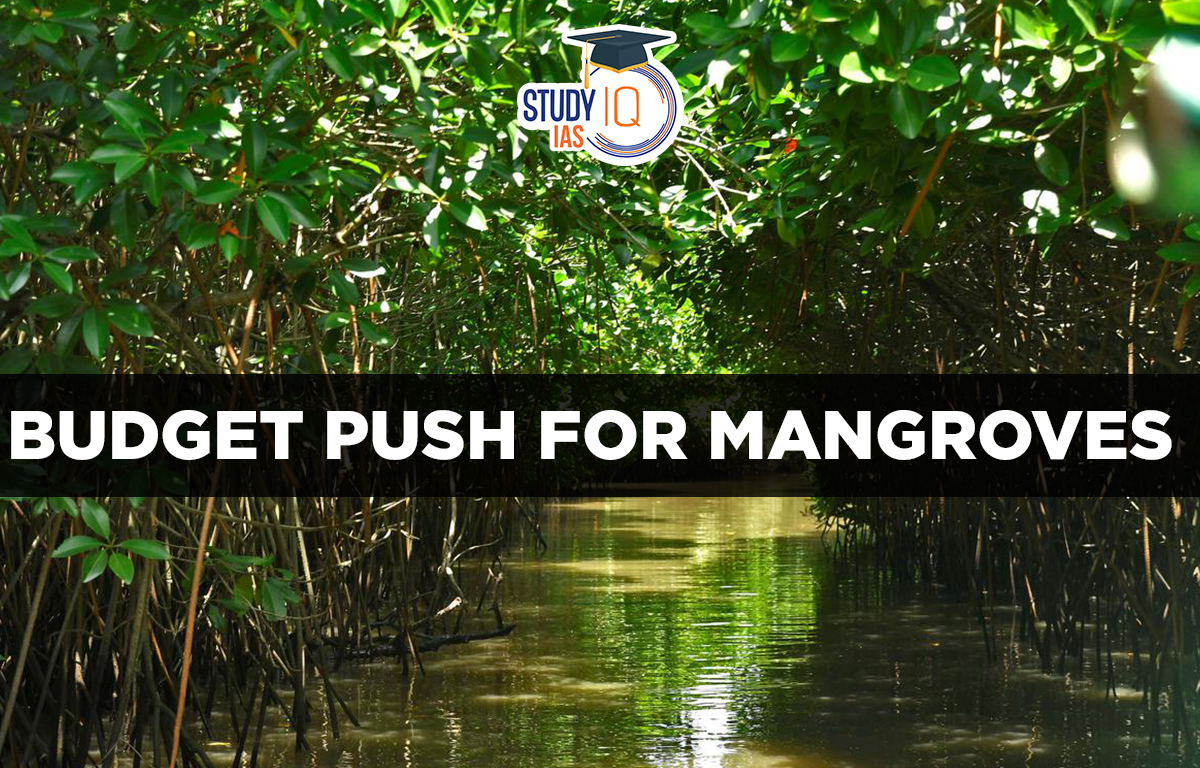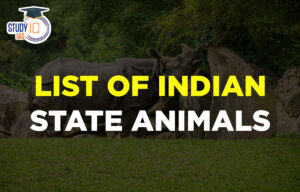Table of Contents
Context: The Union Budget for 2023-24 announced an initiative for mangrove plantation along the coastline and on saltpan lands, under MISHTI (Mangrove Initiative for Shoreline Habitats & Tangible Incomes).
About the MISHTI (Mangrove Initiative for Shoreline Habitats & Tangible Incomes) Scheme
- MISHTI is a new programme that will facilitate mangrove plantations along India’s coastline and on saltpan lands.
- Objectives of the scheme:
- The scheme is aimed at improving the management and preservation of mangrove habitats along coastlines.
- It also seeks to provide tangible income to the local communities that depend on these habitats for their livelihoods.
- Implementation: MISHTI will be implemented through convergence between the MGNREGS (Mahatma Gandhi National Rural Employment Guarantee Scheme), CAMPA (Compensatory Afforestation Fund Management and Planning Authority) Fund and other sources.
- Significance:
- Conservation of mangroves: By promoting the sustainable use and management of mangrove habitats, the MISHTI initiative seeks to ensure the long-term health of these ecosystems.
- Livelihood for coastal communities: Additionally, by providing tangible income to these communities, the initiative can help support their livelihoods and improve their standard of living.
- India’s NDCs: MISHTI is in line with India’s Nationally Determined Contributions of creating an additional carbon sink of 2.5-3 billion tonnes of carbon dioxide (CO2) equivalent by 2030.
- Concerns associated:
- The survival rate of mangrove seed plantation is 50% and of saplings is about 60% and it takes three years for a new plant to stabilize.
- A contract-based one-time plantation under MGNREGS and CAMPA may not work unless the local communities take ownership of the forests.
About Mangroves

- Mangroves are salt-tolerant plant communities found in tropical and subtropical intertidal regions.
- Blue carbon: Mangroves are considered blue carbon ecosystems. Blue carbon refers to the carbon stored in coastal and marine ecosystems, such as mangroves, seagrasses, and salt marshes.
- Formation: Mangrove forests are formed when there is intertidal flow and where adequate sediments are available for the trees to set down roots.
- Mangrove tree species: The tree species that form a mangrove forest or ecosystem are broadly classified as true mangroves and mangroves associates.
- True mangroves are the ones which display morphological adaptations for a high saline mangrove ecosystem such as pneumatophores, vivipary or crypto vivipary germination and salt-secreting cells.
- Mangrove associates are plant species that grow in close proximity to mangroves but are not necessarily adapted to life in saltwater environments.
- Ecosystem services provided by mangroves:

India’s Mangrove Cover
- India has about 4,992 sq km of mangroves, according to the Indian State of Forest Report (IFSR) 2021.
- The IFSR report also points out that India has about 3% of the total mangrove cover in South Asia, and the country’s mangrove cover has increased by 54 square km (1.10%) as compared to the previous 2019 assessment.
- Mangroves in India are distributed across nine States and three Union Territories with West Bengal having the highest mangrove cover of 2,114 sq km.
- Threats to mangroves:
- Destruction of coastal development projects
- Over-exploitation of resources, including mangrove timber and non-timber forest products
- Aquaculture and prawn farming activities
- Pollution from industries and urban settlements
- Climate change and sea level rise
- Natural calamities such as cyclones and storm surges.



 Daily Quiz 17 April 2025
Daily Quiz 17 April 2025
 Nilgiri Biosphere Reserve, Map, Climate,...
Nilgiri Biosphere Reserve, Map, Climate,...
 Complete List of Indian State Animals
Complete List of Indian State Animals





















